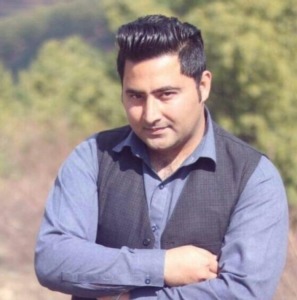Back in 2011, I went to a beauty salon in an upmarket area of Karachi. The interior was nice, the staff friendly, but I soon noticed something strange: there was no running water. The girls working in the shop ran up and down a steep flight of stairs heating bowls of water for hair-washes and manicures, and refilling from a large tanker outside. When I asked the owner what the problem was, she explained that her landlord had cut off the water supply several months before because the shop was owned and run by Christians.
That same year, a blasphemy case against a Christian woman – Asia Bibi, who was sentenced to death for allegedly criticising the Prophet Muhammad after a Muslim neighbour refused to share water with her – had made international headlines. Many of Pakistan’s 2.8 million Christians converted from Hinduism in pre-Partition India, mostly from the “untouchable” caste; the refusal to share water is an unpleasant remnant of this.
These daily difficulties and humiliations form the basis of life for many of Pakistan’s Christians. Many unquestioningly accept the status quo. In various interviews with Christians in different cities of Pakistan, I have been struck by the lack of anger. Most quietly accept their lot, aware that they lack the political clout to agitate for change. “We are very few in a big nation, so we try to stay out of trouble,” one young man, working as a domestic servant, told me in Karachi. “Politicians don’t give us any importance.”
In recent years, there have been numerous small attacks on churches and Christian areas which fail to make major headlines. Just like attacks against Shia Muslims (who make up around 20 per cent of the population), and other minorities such as Hindus and Ahmadis, these incidents almost universally go unpunished. I was living in Karachi when violent protest swept Pakistan’s major cities last year, in response to a low-budget anti-Islam YouTube clip. As the dust settled, I noticed that several churches and Christian schools had stuck signs to their gates condemning the video. This segment of the population is constantly being forced to reiterate that they are Pakistani at all, living in fear of retaliation for offences committed by western powers.
But it takes an event like this Sunday’s bombing of a church in Peshawar, the unstable capital of Pakistan’s north-western province, to highlight the dire reality faced by religious minorities. The double suicide attack took place at midday, as people gathered outside the All Saints Church after Sunday mass. At least 80 people were killed and around 140 more injured. A Taliban-affiliated group has claimed responsibility.
Much of the wider population is horrified by the attack, with small solidarity protests taking place across the country. However, in some quarters, attitudes that preclude meaningful change prevail. On social media, some Pakistanis took issue with others highlighting the bombing: what about the many civilians killed in US drone strikes? Never mind that this is exactly the justification given by the terrorists who carried out Sunday’s attack, nor that the two tragedies of bombings and drone strikes are not mutually exclusive. The same argument is wheeled out on major television talk shows whenever an atrocity attracts major international attention, like the shooting of school girl Malala Yousafzai in 2012, or the large bomb attack against Hazara Shias in Quetta earlier this year.
Some years ago, I had a heated debate with a prominent human rights lawyer in Pakistan. He argued that I was wrong to emphasise attacks on religious minorities in an article I was working on; instability in the country is such that mosques – mainstream places of worship – are not safe. If the majority cannot be protected, he contended, then of course the minorities cannot either. Perhaps, to an extent, he was right. Pakistan’s Muslim population, which makes up 96 per cent of the whole, has faced huge death tolls since the “war on terror” began in 2001. It is estimated that around 35,000 Pakistanis (of all religions) have been killed in the last 12 years. But one atrocity does not cancel out another. The majority has a responsibility to stand with minorities – the most vulnerable people in society. At a time when everyone faces a threat, it is particularly important to stand united in the face of bigotry and extremism.

